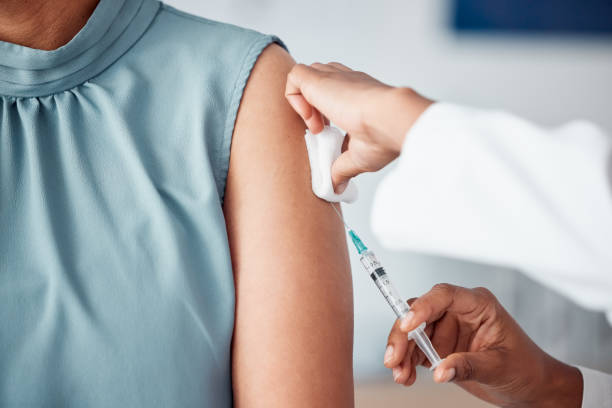The Nigeria Centre for Disease Control and Prevention (NCDC) has recently expressed concern over the rising number of Cerebrospinal Meningitis (CSM) cases nationwide, noting that the disease typically peaks between November and May. As of March 26, 2025, a total of 807 suspected cases and 74 deaths have been recorded across 22 states and the Federal Capital Territory (FCT). In this Cover Story PharmaTimes Editor, MORGAN NWANGUMA reports that despite warnings and precautionary measures put in place by the concerned authorities, the number of cases and deaths have continued to rise.
Early in March it was confirmed by the Kebbi State Health Commissioner, Musa Ismaila concerning the latest outbreak; he referred to a rise in cases within three local government areas of the state where some deaths had already been recorded.
Last year at least 1,700 cases were reported, with recorded number of deaths in seven states going above 150. On the African continent Nigeria is noted to be one of the hotspots of the deadly disease.
“We are saddled with the unfortunate situation of an outbreak with a rising number of cases,” Ismaila noted in a report, enumerating the symptoms of meningitis which include fever, severe headaches, and neck stiffness.
Symptoms
Meningitis is an inflammation of the tissue surrounding the brain and spinal cord, typically caused by viral or bacterial infections. It spreads primarily through close contact, such as kissing, sneezing, coughing, or living in crowded conditions.
In response to the outbreak, the state government has distributed medications to affected areas and set up isolation centres in Gwandu, Jega, and Aliero—the three impacted local government areas—with support from Doctors Without Borders (MSF), Ismaila stated.
Meanwhile, neighboring Sokoto state has issued a health alert following the confirmation of an outbreak.
According to the World Health Organization, Nigeria became the first country to introduce the groundbreaking Men5C vaccine against meningitis last year.
Red alert
Meanwhile as the reported cases continue to escalate, the Nigeria Centre for Disease Control and Prevention has raised an alarm over the outbreak expressing concern about the increasing cases of Cerebrospinal Meningitis in Nigeria. The centre has therefore cautioned the general public, informing that the peak season for the disease usually runs from November to May.
Data from NCDC declares that as at March 26, 2025, 807 suspected cases and 74 deaths were reported across 22 states, and the Federal Capital Territory.
The News Agency of Nigeria (NAN) reported that the Director-General of the centre, Dr. Jide Idris, recently made this known in an interview with news hunters in Abuja.
Idris stated that the centre has placed in motion emergency response measures, predominantly in Kebbi, Katsina, and Sokoto which are the worst-hit states.
“We are in the peak meningitis season, and the risk of transmission is high due to dry, dusty weather and overcrowding.
“The government is intensifying vaccination efforts, but public awareness and early detection remain crucial in preventing fatalities,” he said.
In the words of Idris, Kebbi State alone has recorded 248 suspected cases and 26 deaths since late January.
“We are experiencing a sharp increase in cases, and urgent intervention is required to prevent more deaths.
“In Gombe State, 70 suspected cases have been recorded, with 31 confirmed infections and three fatalities.
“Residents should seek medical attention immediately.
“Meningitis is a deadly but preventable disease. Anyone experiencing high fever, stiff neck, or severe headaches should visit a health facility without delay,” he advised.
He explained that Cerebrospinal Meningitis is a severe and potentially fatal infection of the brain and spinal cord caused by the Neisseria meningitidis bacteria.
“It spreads through coughing, sneezing, and close contact, making overcrowded areas, schools, and IDP camps high-risk zones.
“Common symptoms are severe headache and high fever, neck stiffness, vomiting and confusion, sensitivity to light and seizures (in severe cases),” he said.
He cautioned that without prompt treatment, meningitis could cause brain damage, hearing loss, or even death within hours.
To control the outbreak, Idris stated that the NCDC has dispatched Rapid Response Teams (RRTs) to the affected states.
Control measures
“These teams are working with state governments to conduct mass vaccination campaigns in high-risk areas, strengthen case surveillance and laboratory testing, provide free treatment for confirmed cases at government hospitals and launch public awareness drives to educate citizens on prevention,” he said.
He underlined the fact that vaccination is the most effective safeguard against the disease.
“We urge parents and community leaders to ensure that children and at-risk individuals get vaccinated.
“The vaccines are available at health centres nationwide,” he said.
The DG urged the citizenry to pay serious attention to preventive measures.
“Stay safe by getting vaccinated at the nearest health centre, avoiding overcrowded, poorly ventilated places and practising good hygiene—washing hands regularly.”
He advised citizens to avoid close contact with those who are ill and to seek immediate medical care if symptoms develop.
With cases continuing to rise, he stressed the importance of strict preventive measures for health officials.
“Nigerians are urged to report suspected cases immediately. For emergencies, dial the NCDC helpline: 6232.
“Early detection saves lives. Let’s work together to stop this outbreak before it claims more victims,” he stressed.
While encouraging the public, Idris confirmed that vaccines and treatment are obtainable; nevertheless insisting on the need for individuals as well as communities to take quick action.
“Stay alert, get vaccinated and save lives,” he concluded.





